Congress 60, Dsap, addiction cure, Mr. Hossein Dezhakam cure for incurable diseases, Nicotine addiction cure
The first session of the 84th round of Congress 60 workshops in the Academy branch of Congress 60 was administered on January 29th, 2025 at 10 a.m. by Mr. Hossein Dezhakam as the Guardian and Traveler Mohsen as the secretary. The agenda was “How Thanksgiving TakesPlace in Congress 60”.
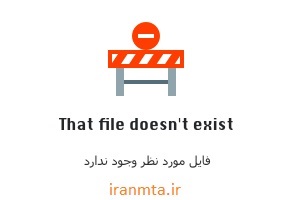
MR. Hossein Dezhakam’s speech: hello friends, I am Hossein a traveler, hope you are doing well. I am also fine, thank God. There is no need to shout when responding to greetings.
Today is 29th January, 2025. It is ten minutes to ten in the morning, and we are in the Academy building in Tehran.
Before I get into the discussions, last Saturday, on the 25th of January, I attended the family group meeting as usual, where we had a session with the assistants.
Several issues were raised for the family group. One was that those who have passed the exam do not need to travel to other cities for their internship [the guides accepted in Congress 60 exam must attend three legions, each for two sessions]. If there are only two legions in their current location, they can complete their internship there. If the nearby cities are too far, they don’t need to go and can complete the process in their own city within the available one or two legions. However, if the nearby cities are accessible, they can participate there.
Individuals who took the exam in another city must establish a legion in that same city. For example, if someone takes the exam in Songhor but wants to become a guide in Mirdamad, that is not allowed. If they participated in Songhor, they must also become a guide in Songhor.
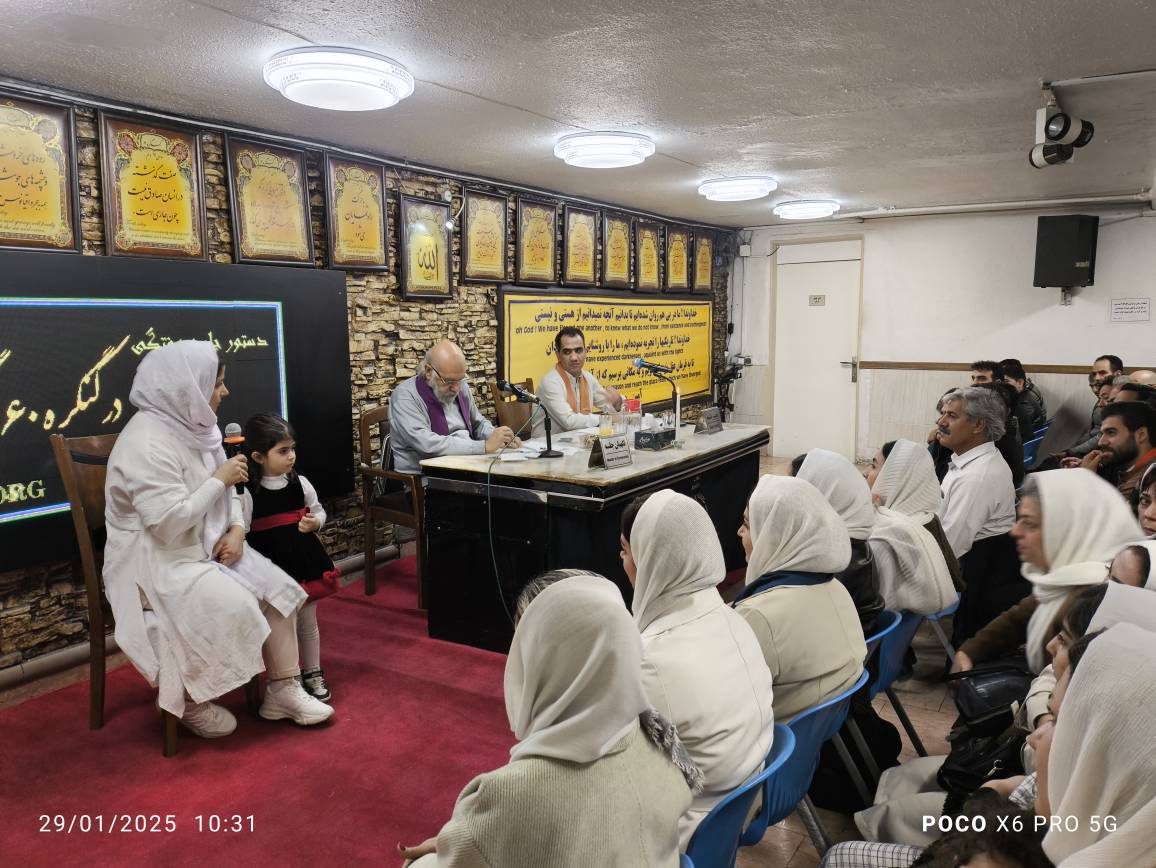
Another issue for the family group is that the term [financial]"supporter" will be removed. We had talked about this before, but it was brought up again in the family group.
We have the 11th law where we collect our expenses [a basket is turned around in every meeting to collect voluntary money], and we have a "Golrizan" (Money Donation Ceremony). We also have a land account where anyone who wishes can contribute money. Now, if they want to buy a refrigerator, they look for a supporter and then buy it—no, that’s not how it should be. If they want to buy a refrigerator for Congress 60, there is money in the Golrizan and in the funds—use that. Only if there is absolutely no money should you seek additional funds.
For example, suppose we need to buy a photocopier; should we find a supporter for photocopier? This concept must be removed. It is completely inappropriate and unpleasant to seek supporters for buying a refrigerator, photocopier, or any other purchase. The Marzban (border-guards) should not stand up and announce, "We need a supporter to buy this or that"—no. The branch has its own funds, and the expenses should be covered from there.
Another issue is regarding newcomers’ guides who take the exam. If they pass as newcomers’ guide, we will no longer announce their names because it only creates confusion in the records. If the newcomers’ guide pass the Guidance exam and receive the orange Shawl [symbol of guides in Congress 60], we will announce. However, if they pass as newcomers’ exam again, there is no need for us to announce it [if the test takers score high they will be accepted as Orange Shawl guides, otherwise, if their scores are slightly below the top scores, they receive Pistachio Shawl and will be allowed to guide the newcomers for three sessions; then the newcomers will select a guide with orange shawl].
As you know, there are lots of exam papers—there are about 120 questions. Each branch has a large number of participants, and every week, we announce results for at least ten to twelve branches.
Another important issue is the family group of travelers and the newcomers' guides. In particular, the family group is extremely important. In my opinion, the role of the newcomers' guide is even more critical than the orange Shawl in some situations because their job is very delicate. The newcomers' guide works with someone who is still a consumer, disoriented, unfamiliar with the Congress 60, unaware of the system, and in a state of denial. They do not yet believe in or accept anything. The guide must talk to such individuals, and their approach can either drive the person away from Congress 60 or help them stay and complete their recovery. This is a very sensitive and crucial matter that must be carefully considered.
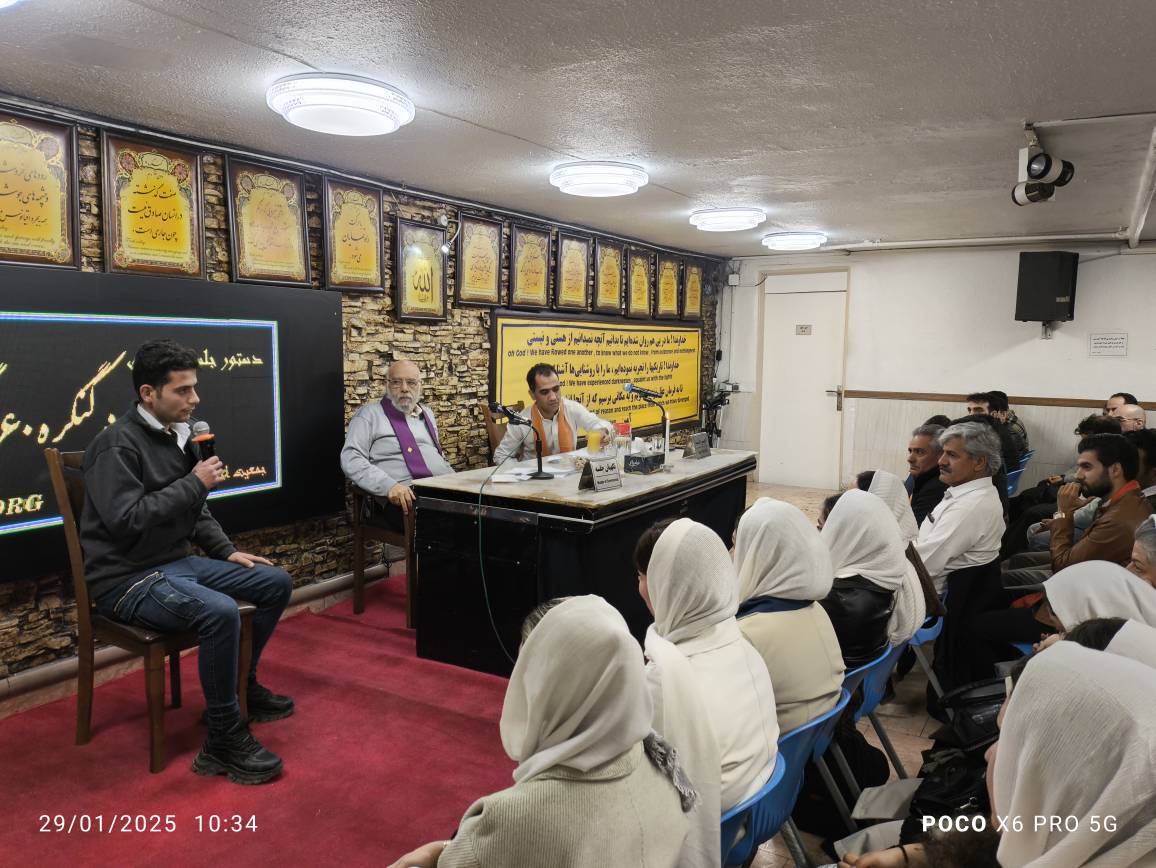
Newcomers coming to family groups of Congress 60 must be explicitly told: If you use substances, you have to declare it right upon their arrival [in the second or third session of their arrival]. The newecomer guide must say to them if you were a consumer or still are, you must disclose it now. Later on, you won’t be able to come back and say otherwise. This must be explained clearly, but not in the first session—rather, in the second or third session. It should be communicated in a way that encourages them to openly admit: Yes, I am a consumer. Otherwise, after five years, they might suddenly claim: I have been addicted just by being around my husband, and now I am unwell, we do not accept these cases as travelers [drug abuser], and therefore, we do not take the responsibility to cure their addiction, because they were to announce their addiction upon their arrival to companions’ meetings].
Another issue regarding family group members is that some companions enter the group while using merely psychiatric pills. Drug abusers are evident from their speech and words. However, because they take medication—and because Congress 60 does not accept individuals only using psychiatric medication or those having a specific illness, they may mischievously say I am a drug consumer [to be cured]. But this is not allowed in Congress 60. For instance, if we tell them to take 5cc of OT (opium tincture), they might collapse immediately. That’s why great care must be taken in such cases [those who claim they are drug abusers only to receive Opium Tincture to cure their incurable diseases or to overcome their psychiatric pills addiction].
Today's Discussion Topic is “How Should We Express Gratitude in Congress 60?” What is gratitude, really? Many people think that expressing gratitude is simply a polite or gentlemanly act, like saying, Thank you, God! But in reality, gratitude means repaying our debts for the services and blessings we have received. Through gratitude, we are paying back—we should not be the creditors of God and His creations.
We express gratitude for the blessings God has given us. And gratitude is not just towards God; showing gratitude to His creation is just the same as thanking God Himself.
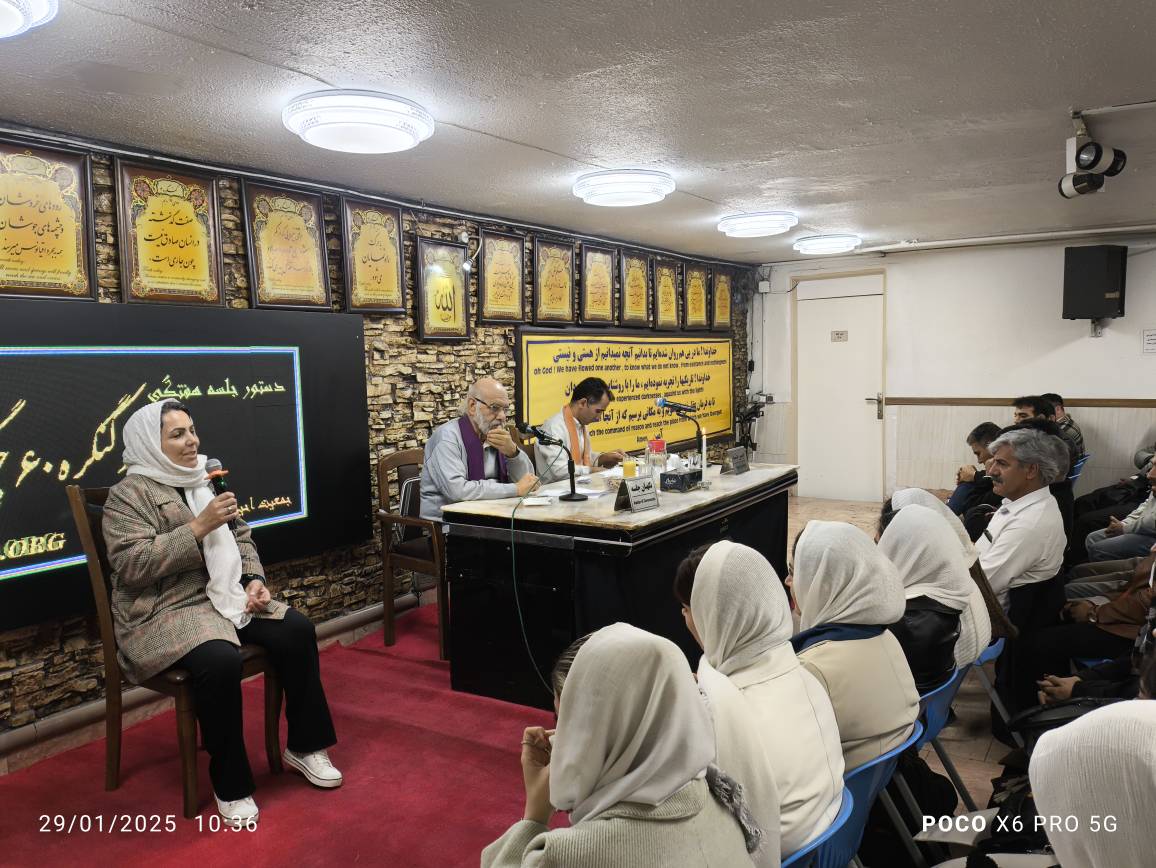
Gratitude should be practiced in three stages:
1. Thoughts and Beliefs (Mental Acknowledgment)
- You must first believe in your mind and heart that expressing gratitude is necessary.
- For example, if someone places a cup of tea in front of you, you should naturally say, “Thank you!” “Dear lady or gentleman, thank you”.
- If you buy a watermelon and bring it home, your family should acknowledge it: Thank you!
- If someone cooks a meal for you, you should express appreciation.
- If someone irons your clothes, purchases household items, or performs any act of service for you, you must recognize and honor it. Every act of service, no matter how small, deserves acknowledgment.
There are three essential things we must learn—things that, unfortunately, some of us have never even learned:
1. “Please” (Lutfan) – We must learn to say please whenever we ask for something.
2. “Thank You”– We should always express gratitude.
3. “I’m Sorry” “I apologize”– If we make a mistake, we must acknowledge it and apologize.
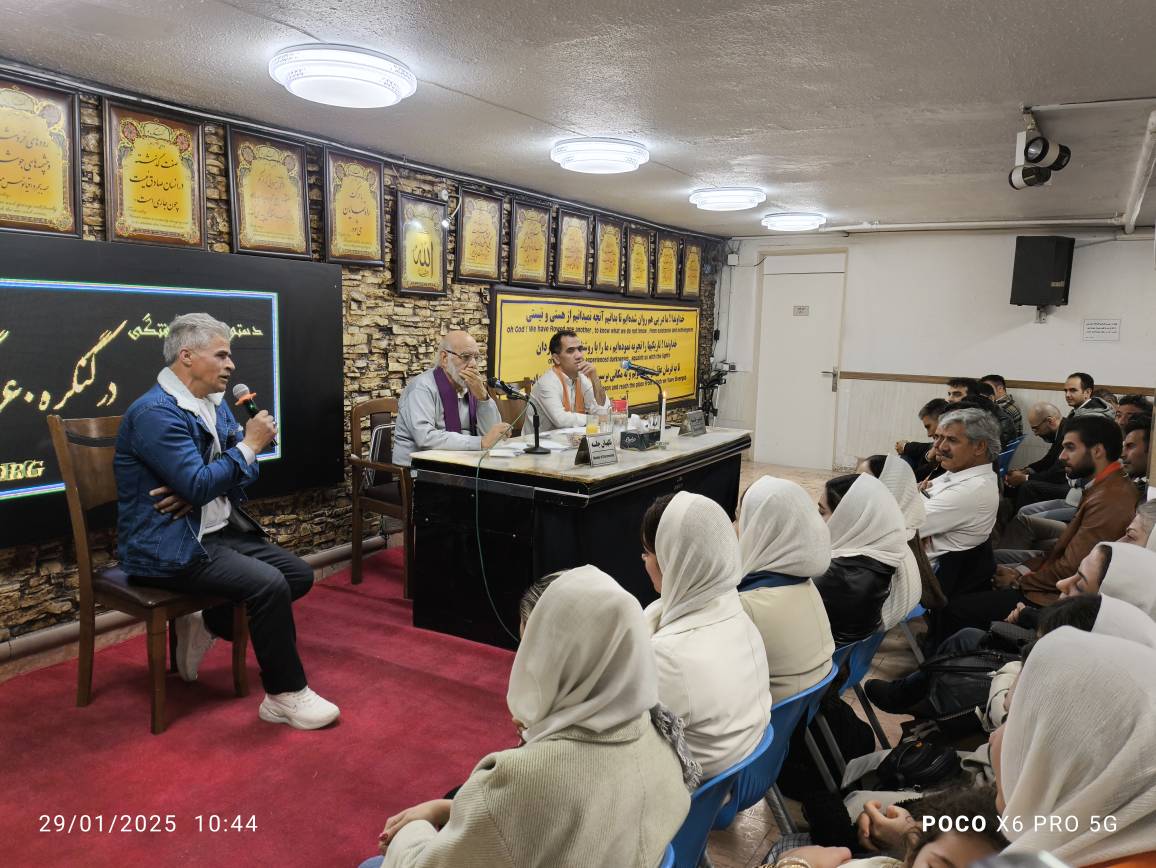
The more understanding and wisdom a person has, the better they practice these three principles. On the other hand, the less intelligent someone is, the less they apply them. They might think: If I thank someone, they’ll take advantage of it. If I apologize, it means I admit my mistake, so I’d rather stay silent.
True Gratitude Involves Thought, Speech, and Action
As I mentioned, gratitude must be expressed in three stages:
1. Thought (Pendar) – You must truly believe in gratitude from within.
2. Speech (Goftar) – Saying thank you sincerely.
3. Action (Kerdar) – Demonstrating appreciation through your deeds.
For example, if someone says, I already said thank you, that alone is not enough. Consider this: Your guide has worked tirelessly for you for a year. They have left their job, spent their own money on transportation, sacrificed their time, and dedicated their efforts to teach and support you. How do you intend to thank them? How will you show appreciation and how will you thank them?
I usually don’t use the word addict much, [but let’s be honest]—look at the situation from another perspective. You were a consumer, an addict. We refer to you as a traveler now. Your guide helped you recover, guided you, and now you’re healed. You should respect and honor your guide.
Now, in some cities, I’ve heard something [strange]. In Jones’s legions [weight-loss legions], Congress 60 individuals have lost 30 or 40 kilos without taking a single pill, without damaging their physiology, without paying for surgery, without having their intestines shrunk, their stomach cut, or their fat surgically removed—these individuals have received all these services for free. But when they are told, you need to come to Tehran, their response is: No, I won’t come. It’s too expensive to travel to Tehran [to get the order of Liberation from obesity from Mr. Hossein Dezhakam].
This is shameful! They have received everything at no cost, and now, when it’s time to take one step, they refuse—even they refuse to come to Tehran to be liberated from addiction!
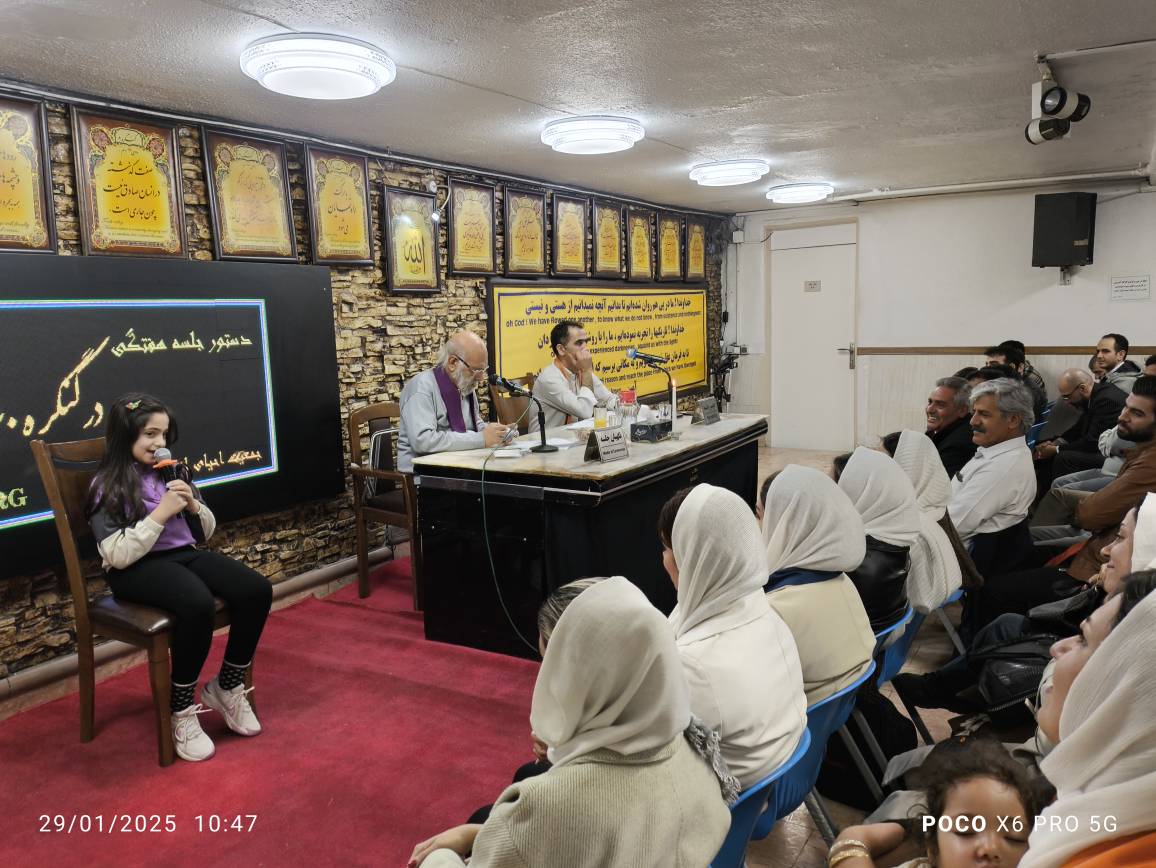
Sometimes I say: Even if you had to walk from Mars to Tehran to receive your liberation from addiction, it still wouldn’t be enough! What have you given in return for what you have received? You were 30 kilos overweight, and they guided you through the process without taking a single cent from you. What have you done in return? You were a consumer—whether it was heroin, opium, or something else—and the guides helped you recover. What have you given back? What have you done to show gratitude? And yet, when you’re asked to travel a certain distance, you respond, it is too far, it’s too expensive! Think about it—you have been sitting here, benefiting from countless services. The electricity, the heating in winter, the cooling in summer, the maintenance of the place—all of it is provided for you. This place opens at 4 a.m., and the Marzbans (border-guards) have been here since then, standing, working, organizing, standing in the street and alleys, ensuring everything runs smoothly. These are services given to us—so how do we show gratitude? Do we even appreciate it?
So, in Congress 60, we never buy on credit and never take loans.
We have a Persian proverb which reads: "Gratitude for blessings increases the blessings; ingratitude takes them away." When a blessing is given to you, if you express gratitude and appreciation, the blessing increases. If you don’t, the blessing is taken away from you.
These are the things that strengthen and solidify human relationships, and fortunately, this is being well implemented in Congress 60. Even if only ten or twenty percent of Congress 60 members practice it, it is acceptable and [makes the system] powerful.
All human beings are good. All human beings are intelligent. In my opinion, we don’t have any bad people at all. If a person is bad, their understanding has been impaired, they have not understood the matters, they haven’t realized it. But a person who is aware, will never be bad, it is impossible for them to be bad. If a person understands and knows that doing bad is wrong, it is impossible for them to do bad. But there are people who have always progressed by taking bribes, and for them, it is a problem to stop taking bribes. Or a person who has always advanced by lying, it is impossible for them to stop lying. Or someone who has used force to achieve certain results, it is impossible for them to stop using force, unless they gain a change in their perspective.
We speak of knowledge and ignorance. Ignorance means not knowing. Not knowing leads to problems. We talk about light and darkness. Light has its own essence, but darkness has no essence of its own. Darkness is the absence of light. A small amount of light can dispel darkness. So, those people who are misguided, it's because of misunderstanding, not due to awakening or awareness.
People who are aware, perform gratitude beautifully, and if we hadn't learned gratitude in Congress 60, we would have had nothing now. Even though all NGOs and organizations are facing economic problems, we, fortunately, in Congress 60 are not.
In cities, all branches have their monetary reserves. For example, if we ask the accountant: how much does the Songhor branch have in its account? They might say: 600 million Tomans. All branches’ reserves belong to them. When they want to buy land, for instance, if they find land for 19 million Tomans, and they have 15 million tomans as reserve, if they ask me for help, to pay remaining 4 million so that they can buy the land; I say: I don’t do that kind of thing. I don’t give you this amount, not even a cent. I’ll give you 14 million or 12 million, or billions. I keep 20 or 30 percent of your reserve in Congress 60’s account. Because I cannot permit the branch to empty their account, that is, to be left with zero. We shouldn’t be left with no reserves and in debt.
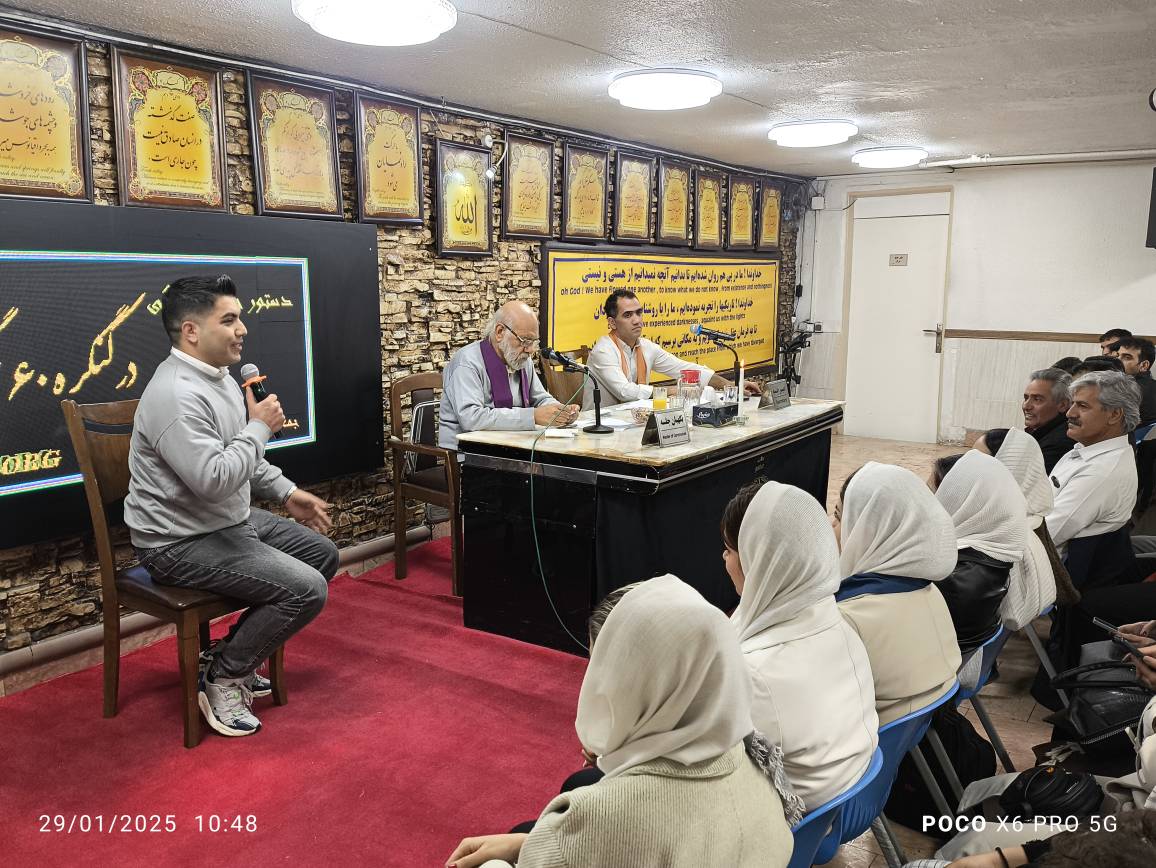
When we started Congress 60, I said: there are a few rules that govern Congress 60, and over these 25-26 years, we have completely implemented all of them. One: I said, we are not allowed to buy on credit. We cannot buy anything on installment. If we need a photocopier and we don’t have the money, we don’t buy it. If we need chairs and we don’t have the money, we sit on the floor, we don’t buy them.
Second: We don’t buy on installment. Installment buying is prohibited in Congress 60. If we have the money, we buy. If we can’t, we don’t buy. We have bought several government lands and they said: you can pay in ten-year installments. I said: we don’t pay in installments. We pay in cash. So, we don’t buy on installment. I said: I cannot leave a series of debts for future generations. For example, if the Kerman branch owes 6 billion or 10 billion tomans, this will lead to its collapse. We don’t buy on installment, we don’t buy on credit.
Checks; we only give checks for the current day. In Congress 60, giving post-dated checks is prohibited. A check is only for the current day. Because during my own time, I had so many checks bounce and warrants for my arrest were issued, I said: I no longer have the patience to issue checks and be arrested. In that time, I didn’t have peace or comfort. For any action, the bank would call to tell me that my check was bouncing, and others would say: 'Sir, come and delay it' – a real trouble. I said that’s the lesson I’ve learned [from my past], we never give post-dated checks in Congress 60. Right now, my own personal account follows the same rule. I don’t use checks at all, but if I ever have to, I won’t give a check unless there’s money in my account. We all should make this the standard for our work. Now, in business, some people have certain deals where they give and take checks, that's their business, I don't interfere with them, but we don’t do it.
Well, what did give us the ability to not buy on credit or debt? The sense of Gratitude among Congress 60 members. They have understood. They came and became members of Sardar Legion [Money donation legion, each Sardar Legion must pay at least 100 dollars]. They came and became Donors [those members of Congress 60 who donate 1000 dollars to buy land and equipment for Congress 60]. They came and became Pahlevans [those Congress 60 members who donate 10000 dollars]. A Pahlevan is someone who must reach the stage of awakening and awareness. It's no joke to want to give 500 million Tomans [10000 $] for Congress 60. Some want to come and give, but I don’t accept it. From ten individuals who want to give this amount, I accept four of them. Then I say: Anyone who has donated to Congress 60, can come and take it back anytime within a year. Maybe someone has donated money to Congress 60 and runs into trouble, I say: come and take it back.
If it weren’t for that gratitude, if it wouldn’t be practical in this way, we could not be at this stage [of prosperity]. When someone comes and gives money, this is called “gratitude in practice”. Now, in their own way, they are a member of Sardar Legion [those who pay 100 a year]. The amount is small, but the number of members who pay this amount is very large. These are the results of gratitude.
If you want to thank your guide, you have to give them an envelope of money. We don’t give gifts. Gifts in Congress 60 have been discontinued. In my opinion, I may have many inventions and discoveries, but the invention of the envelope [of money] is the most important of all; it made everyone’s work easier. You had to think of the type of gift, you had to think if you buy them a shirt, a pair of pants, what color they like. If you get a shirt for them, but it doesn’t fit, or they don’t use it. They’ll put it aside, give it to someone else [as a gift], and after a while and several exchanges, they’ll see it’s back with them. I said these things don’t help. When it was my birthday, I had two garbage bags full of blankets, quilts, pillows, and baby cradles (laughing) and put them to the back of the pickup truck [for example to be sent to the landfills]. But now it’s not like that. We said you must give an envelope at special ceremonies, whether it contains 100000 Tomans, 200000 Tomans, or whatever the person can afford. They no longer need to go around looking for gifts, which are not useful for them either.
When you go to someone's wedding ceremony, give them an envelope of money. When you go to a memorial service, give them an envelope as well. Instead of putting up banners on the walls, sending condolences, or buying a 5-million-toman wreath, put that money in an envelope and give it to them. At least the money can be used for the burial or funeral expenses. Now, God forbid, someone dies. In the past, when someone died, the bereaved would sit down and not do anything. The people around them would say “You’re mourning. You have grief, that’s enough, sit down and do nothing but mourning”. The whole neighborhood would get involved—one would bring sugar, another would bring a pot, one would bring potatoes, and so on. They did all the work. They washed the body of the deceased, and they did it right there at the house. In the old days, there were no Funeral Buildings; they washed the deceased body in their house, buried it, and gave out charity, and the family never even knew. Now, as soon as someone dies, there's the phone bill, the ambulance fee, they say the funeral prayers, the fee for the person who said the prayer, the cost of the gravestone, and so on.
So, we return to the same point of gratitude and appreciation. Your friend has lost someone dear to them. How do you show gratitude for your friendship? In their time of need, should you help? Will you help, or do you choose not to? This is what we need to learn.
The same holds true for me, on the day of their liberation from addiction, they give me an envelope. Why do they give me an envelope? They should (laughs). Why? One reason is that I’m their teacher. The second reason is that I’m the inventor and creator of the DST method. You used my method for dealing with substances [to cure your addiction]. You used my method for quitting [cigarettes] smoking. You used my method for losing weight. It’s true that you have a guide, but the theory is mine. I’m the author of it. Therefore, you give me an envelope, too. One day, when I leave this world, you’ll still have to give one, rest assured. That, too, will go towards helping the university of Congress 60 and other [related] issues.
Last year, I donated two billion tomans (33000 dollars) to Congress 60. That’s the minimum amount. I must say these things, so people understand what I do. I gave two billion there. I don’t mention the other expenses. I helped with addiction knowledge last year. This year, through Dezhakam Publishing, I give gold coins to researchers, with prizes that are already defined. I also provide scholarships for students coming from out of town for Addiction Studies, giving them Travel Awards. I said: Dezhakam Publishing should continue giving awards to researchers.
So, this is a form of appreciation for me. They say: ‘I don’t know how to thank you, my words fail me,’ I say: just do it with an envelope!
Let me mention one more thing: if you want to write a heartfelt note, don’t go looking on the internet. Write from your heart. When you write a heartfelt note, don’t write a poem by Rumi. You might use one line, but speak from your own heart. If you want to write a heartfelt note, don’t write a ghazal by Hafez. Hafez’s ghazals belong to Hafez. A heartfelt note should be something that comes from your own heart. You don’t need to go and find a beautiful literary phrase. It won’t help. That’s someone else’s, they said it, and you can read it and enjoy it. But when you write for someone else and go on the internet to find something, you’ll find a hundred other similar ones. When I read the heartfelt notes, I see phrases like: “please talk to me because you resemble the wise Luqman...” It’s beautiful, but don’t torture yourself like this. This statement belongs to someone else and keeps getting repeated. So, write from your own heart.
So, overall, what we are saying is: if the members of Congress 60 hadn’t learned gratitude and appreciation, and hadn’t practiced it, we wouldn’t have reached this point today.
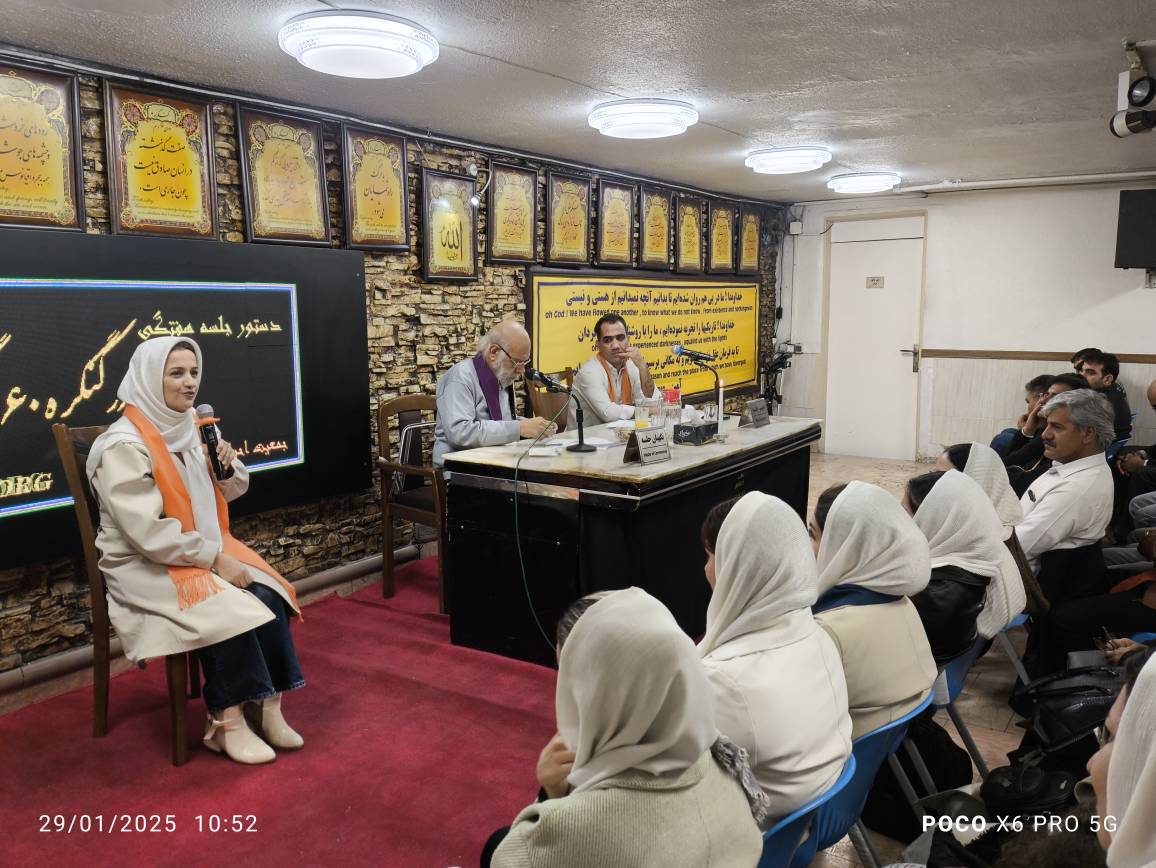
We just bought a piece of land two weeks ago for Shadabad. Some had been paid already, and for Monday, I drew checks worth 19 billion. One for ten billion. One for nine billion. For other places that want to buy land and build, two billion, five billion, and so on. As for Khwarazmi University on Qeshm Island, God knows—it’s like a whale that no matter how much it eats, there’s still room for more.
Do you know what “two portions and a half are left” means? Prophet Sulaiman [Solomon] went to God and said, I want to feed all these creatures for one day. God said, You can’t, this is not your job. Solomon replied, please let me do it for one day, I want to feed them all myself. This is where God's power is shown, to demonstrate how capable He is and what certain humans can do. It shows the power of God. God agreed. Prophet Sulaiman gathered food for six months to feed the animals and creatures. At 10 AM, a whale arrives and says, give me my breakfast, I have work to do. Solomon tells people, give him two cows to eat. The whale eats, but then says, I’m still hungry. Everything they had gathered was merely eaten by the whale. It was all gone. The whale said, I’m still not full. Solomon asked, how can you still not be full? You ate everything [we gathered for six months. The whale replied, every day I eat three portions of food. Today I only received half a portion. Two portions and a half are still left! So, when it says two portions and a half are left, it refers to that. It conveys God’s capability or the abilities of some humans to do certain things. Do we have this ability to do it ourselves? Or the abilities that some great people had?
In any case, I am truly satisfied with and very happy that Congress 60 members understood gratitude and appreciation. Many people come to me wanting to give money, but I don’t accept it. When don’t I accept it? When they or their family are in need [of that money]. I talk to them, ask questions, interview them. If they have the ability and their lives won’t be affected, I say, “Yes, go ahead, donate it.” Otherwise, I don’t accept it.
In any case, I am truly satisfied with and very happy that the kids understood gratitude and appreciation. Many people come to me wanting to give money, but I don’t accept it. When don’t I accept it? When they or their family are in need. I talk to them, ask questions, interview them. If they have the ability and their lives won’t be affected, I say, 'Yes, go ahead, give it.' Otherwise, I don’t accept it."
There’s a place called 'Milajerd' in Markazi province. The governor or mayor came to me, who was a very kind and great man. He requested that we open a branch in their city. So, to those who are in Markazi province and know Milajerd, and if there are any guides or locals from Milajerd [those who want to serve in that area], please contact me and let me know if they are ready for this task. If I am not accessible, they should definitely speak to Mr. Ali Khodami and inform him that we are ready to serve in Milajerd, so we can have a Legion [to cure addiction] in Milajerd, which has been requested for many years.
So, I will conclude my speech. Gratitude means repaying our debts. What for? For the services, kindness, and blessings that have been given to us. I hope that we can all be grateful to God. Thank you all for paying attention to my words. I’m grateful and thankful. Thank you.
Translated by Elahe
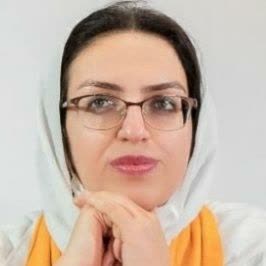
https://congress60.org/News/384013/%DA%A9%D8%A7%D8%B1%DA%AF%D8%A7%D9%87-%D8%A2%D9%85%D9%88%D8%B2%D8%B4%DB%8C-%D8%AC%D9%87%D8%A7%D9%86%E2%80%8C%D8%A8%DB%8C%D9%86%DB%8C-%D8%AF%D8%B1-%DA%A9%D9%86%DA%AF%D8%B1%D9%87-60-%DA%86%DA%AF%D9%88%D9%86%D9%87-%D9%82%D8%AF%D8%B1%D8%AF%D8%A7%D9%86%DB%8C-%D9%85%DB%8C-%DA%A9%D9%86%DB%8C%D9%85